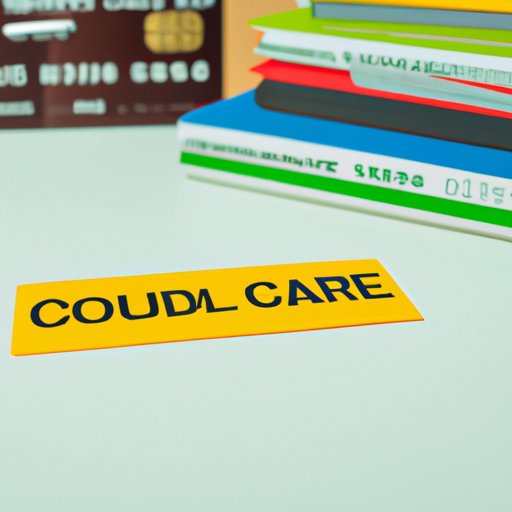Introduction
Unsecured finance is a type of financing that does not require collateral or security. It is a common form of consumer credit, and it can be used to fund a variety of purchases or expenses. Knowing the basics of unsecured finance will help you decide whether or not it is the right option for your needs.
Exploring Unsecured Finance: What You Need to Know
An understanding of how unsecured finance works, its benefits and risks, and the different types available can help you make an informed decision.
An Overview of How Unsecured Finance Works
Unsecured finance is typically offered by banks and other financial institutions. When you apply for an unsecured loan, the bank or institution reviews your credit score and other information to determine whether or not you are eligible for the loan. If approved, you will receive the funds in a lump sum and will then need to repay the loan according to the terms of the agreement.
Benefits and Risks of Unsecured Finance
The primary benefit of unsecured finance is that it allows you to access funds without having to put up any assets as collateral. This means that you do not have to worry about losing your home, car, or other property if you default on the loan. However, unsecured finance also carries risks. Since there is no collateral to back up the loan, lenders may charge higher interest rates and fees than they would for secured loans. Additionally, lenders may also impose more stringent eligibility requirements for unsecured finance.
The Different Types of Unsecured Finance
There are several different types of unsecured finance available, each with its own set of pros and cons.
Personal Loans
Personal loans are one of the most popular types of unsecured finance. They can be used for a variety of purposes, including debt consolidation, home improvement projects, medical expenses, and more. Personal loans typically have fixed interest rates and repayment periods, making them easier to budget for.
Credit Cards
Credit cards are another type of unsecured finance. They offer flexibility and convenience, but they can also be dangerous if used irresponsibly. Credit cards often have higher interest rates than personal loans, so it is important to pay off the balance in full each month to avoid accumulating debt.
Lines of Credit
A line of credit is a revolving line of unsecured credit that can be used for short-term borrowing needs. Lines of credit are best for those who may need to borrow money frequently or have irregular cash flow. Like credit cards, they have high interest rates, so it is important to pay off the balance quickly to avoid accumulating debt.

How to Qualify for Unsecured Finance
In order to qualify for unsecured finance, you must meet certain requirements. These include having a good credit score, a steady income, and a manageable debt-to-income ratio.
Credit Score
Your credit score is one of the most important factors in determining whether or not you qualify for unsecured finance. Most lenders require a minimum score of 650 in order to qualify for an unsecured loan.
Income
Your income is also taken into consideration when applying for an unsecured loan. Lenders want to make sure that you have enough money coming in each month to cover your loan payments. Generally, lenders prefer applicants who have a steady source of income.
Debt-to-Income Ratio
Your debt-to-income ratio (DTI) is a measure of how much debt you have relative to your income. Lenders use this ratio to determine whether or not you can handle taking on additional debt. A lower DTI is preferable, and lenders typically look for applicants with a DTI of 36% or less.

All About Unsecured Finance: Pros and Cons
When considering unsecured finance, it is important to weigh the pros and cons to determine if it is the right option for you.
Pros
- No collateral required
- Funds can be used for a variety of purposes
- Flexible repayment options
- Easy to qualify for
Cons
- Higher interest rates than secured loans
- Strict eligibility requirements
- Risk of accumulating debt if not managed properly

Finding the Right Unsecured Finance Option for You
Once you have weighed the pros and cons of unsecured finance, the next step is to find the right option for your needs.
Researching Options
Before applying for an unsecured loan, it is important to research all of your options. Compare interest rates, fees, and repayment terms to find the best deal.
Comparing Rates and Terms
It is also important to compare the rates and terms of different lenders. Some lenders may offer lower interest rates or more flexible repayment terms than others.
Seeking Professional Advice
Finally, it is always a good idea to seek professional advice before taking out an unsecured loan. A financial advisor or credit counsellor can help you make an informed decision and find the right loan for your needs.
Conclusion
Unsecured finance is a great option for those who need access to funds without having to put up collateral. However, it is important to understand the risks associated with unsecured finance and to carefully research and compare all of your options before taking out a loan. By understanding how unsecured finance works and finding the right loan for your needs, you can ensure that you make a financially sound decision.
(Note: Is this article not meeting your expectations? Do you have knowledge or insights to share? Unlock new opportunities and expand your reach by joining our authors team. Click Registration to join us and share your expertise with our readers.)
